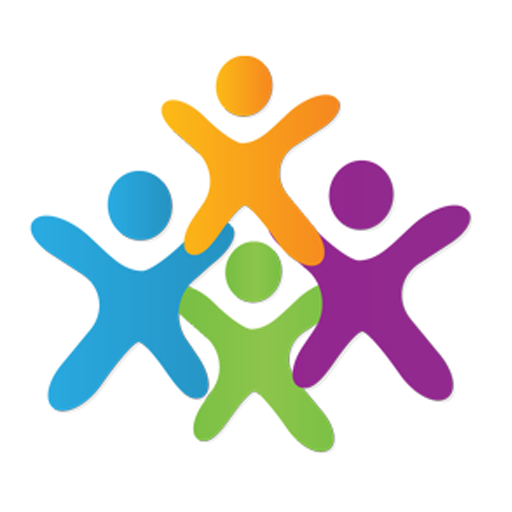PSHE
Curriculum for Life covers PSHE, Careers, British Values and Citizenship. It is delivered in the tutorial period twice per week to form groups. The programme is delivered by form tutors, who know their students well. There are a variety of carefully selected outside speakers who deliver to our students during assemblies on different topics at different points in the year, such as the police and mental health charities. There are opportunities to be creative in their homework assignments.
The themes covered in the programme are:
- Well-being: My Healthy Life
- Community: My Place at Thornleigh
- Futures: Building my Future
- Character: Developing Myself
- RSE: Myself and others
- Global Citizenship: Me and the World.
For statutory RSE elements of the Curriculum for Life programme we follow the Life to the Full Catholic programme of study. Life to the Full teaches Relationship, Sex and Health Education (RSHE) within the context of a Christian understanding of human sexuality rooted in the wisdom and teaching of the Catholic Church. The teaching includes lessons on puberty, personal hygiene, fertility, menstruation, family and friends, sexual intimacy, delaying sex, an understanding of the body, sexuality, marriage, gender, online relationships, social media, consent, grooming, pressure, natural family planning, and the effect of drugs and alcohol on relationships. The programme is fully inclusive of all students. There is a ‘parent portal’ which provides a summary of each lesson, links to specific content, and suggestions for further engagement at home.
Year 7
Session 1: Who Am I?
The core religious understanding taught at the outset of this programme of work is that we are created by God as one whole person, both body and soul. Pupils will be encouraged to celebrate their uniqueness, value and dignity, which derive from God, and subsequently to recognise the respect they should have for themselves and others as persons.
Session 2: Changing Bodies
Building on the religious understanding of the body, students will explore changes in puberty, including physical and emotional changes. They will consider how to look after and accept their changing bodies, including how to take responsibility for personal hygiene, and understand that there are different body shapes, sizes and personal attributes.
Session 3: Healthy Inside And Out
In this session, pupils identify what contributes to their self-esteem, and how high or low levels of self-esteem can affect their confidence and decision making. Building on previous exploration of body shapes and sizes, they will explore the effect of body image and learn techniques to help them increase self-esteem.
Session 4: Where We Come From
This session enables students to understand sexual intercourse within a scientific, moral and religious context, leading them in turn to a richer understanding of human reproduction, including fertility and the menstrual cycle.
Session 5: Family and Friends
In this session, pupils will learn the features of positive and stable relationships between family and friends. They will reflect on different family structures, explore how to deal with conflict, and understand the qualities of true friendship.
Session 6: My Life on Screen
Rooted in the Catholic teaching that we are made out of love for love, pupils will explore their digital lives and the effect our use of digital technology can have on ourselves and others.
Session 7: Living Responsibly
Building on previous sessions’ learning about behaviour management, the final session of the Foundation (Year 7 – 8) Programme explores social responsibility and respect for self and others. It should inspire young people to be responsible and play a positive part in their communities.
Year 8
Session 1: Created and Chosen
This foundational session helps students at the beginning of the Year 8 programme to develop an appreciation that our deepest identity is in God: as people created, chosen and loved by Him. Students will learn that science proves our uniqueness and becoming aware of it can help us to open up to God who is the ground of our being and the One who loves us.
Session 2: Appreciating Differences
Building on the teaching that our deepest identity is in God, students will learn about male/female differences including issues such as gender stereotypes, gender identity and gender dysphoria. Students will understand that equality is of great importance, and that we should celebrate our uniqueness. Students will learn about different perspectives regarding gender and transgender identity and they will know that bullying and marginalising others is always wrong because every person is a child of God, worthy of love.
Session 3: Feelings
This session explores God’s wonderful gift of sexual attraction, which requires self-control, mutual respect and patience to manage well. Pupils will also learn that God has a plan for sex: that our deepest drive to love and be loved is met through sexual union which is total, faithful and open to the precious gift of life.
Session 4: Before I Was Born
This session invites pupils to appreciate the beautiful and fragile gift that life is through learning about the miraculous journey from conception to birth. This also involves teaching on the ending of pregnancies prematurely through miscarriage or deliberately via abortion, and different attitudes surrounding this, including discussions about when life begins.
Session 5: Tough Relationships
Building on themes of equality and celebrating difference, this session addresses themes prejudice and discrimination, both historical and current. Pupils will learn about privilege, ‘Protected Characteristics’ and how to resist judgement. The session ends with a challenge for pupils to choose the route of tolerance, kindness and forgiveness, and never to suffer in silence.
Session 6: Think Before You Share
This session explores the social, personal and legal consequences of sharing images of a sexual nature. Pupils will also learn about their digital footprint, pornography and online exploitation, leading to the understanding that sharing anything in word, speech or action that reduces people to objects dishonours their God-given dignity.
Session 7: Wider World
Exploring issues of prejudice, discrimination and homophobic bullying, including a Holocaust case study, pupils will learn that we are called to love and respect one another as children of God with value and dignity that far surpasses our culture, race, religion, sexual orientation, choices and attitudes. Pupils will be given the opportunity to examine and commit to change their own behaviour.
Year 9
Session 2: Love People, Use Things
Building on the Catholic teaching about sexual intimacy, this session explores some key issues for Year 9 pupils regarding sexual desire, casual sex, pornography and masturbation. It will empower pupils to love people and use things, rather than the other way around.
Session 3: In Control of My Choices
This session helps pupils to understand the difference between love and lust and the importance and benefits of delaying sexual intimacy. Pupils will recognise, clarify and, if necessary, challenge their values, attitudes and beliefs, and they will understand how these influence their choices.
Session 4: Fertility And Contraception
Through interviews with experts and testimonies from couples, pupils will learn about methods of managing conception for the purposes of achieving or avoiding pregnancy and the difference between natural and artificial methods. They will also be taught the Church’s teaching on contraception and the value of life, and the specifics of how different contraceptives function.
Session 5: Marriage
In this session, pupils will discuss various types of committed relationships (e.g. civil marriage, civil partnerships, forced marriage, monogamy, etc) leading to teaching about the nature and importance of sacramental Christian marriage. Pupils will also be encouraged to consider their own future relationship plans and give thought to developing the virtues they will need.
Session 6: One Hundred Percent
In this lesson, pupils will learn about non-physical and online consent (physical consent and sexual exploitation are covered in the next session). They will learn that consent given under pressure or coercion is not true consent.
Session 7: Knowing My Rights and Responsibilities
The final session of this programme explores issues around physical consent and sexual exploitation. It also explores wider human rights and responsibilities, and the tensions between human rights law and cultural/religious expectations.








